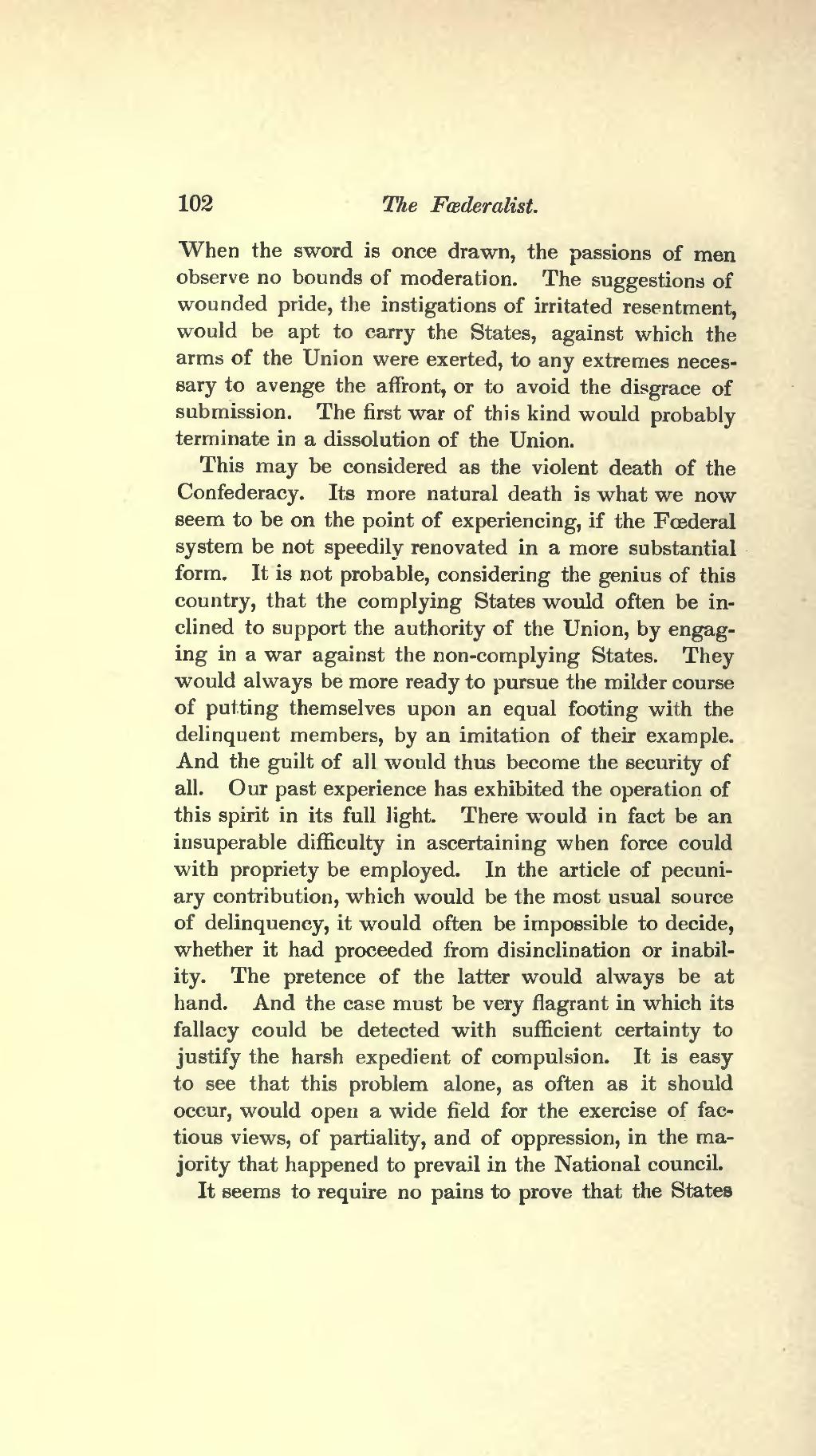When the sword is once drawn, the passions of men observe no bounds of moderation. The suggestions of wounded pride, the instigations of irritated resentment, would be apt to carry the States, against which the arms of the Union were exerted, to any extremes necessary to avenge the affront, or to avoid the disgrace of submission. The first war of this kind would probably terminate in a dissolution of the Union.
This may be considered as the violent death of the Confederacy. Its more natural death is what we now seem to be on the point of experiencing, if the Fœderal system be not speedily renovated in a more substantial form. It is not probable, considering the genius of this country, that the complying States would often be inclined to support the authority of the Union, by engaging in a war against the non-complying States. They would always be more ready to pursue the milder course of putting themselves upon an equal footing with the delinquent members, by an imitation of their example. And the guilt of all would thus become the security of all. Our past experience has exhibited the operation of this spirit in its full light. There would in fact be an insuperable difficulty in ascertaining when force could with propriety be employed. In the article of pecuniary contribution, which would be the most usual source of delinquency, it would often be impossible to decide, whether it had proceeded from disinclination or inability. The pretence of the latter would always be at hand. And the case must be very flagrant in which its fallacy could be detected with sufficient certainty to justify the harsh expedient of compulsion. It is easy to see that this problem alone, as often as it should occur, would open a wide field for the exercise of factious views, of partiality, and of oppression, in the majority that happened to prevail in the National council.
It seems to require no pains to prove that the States

